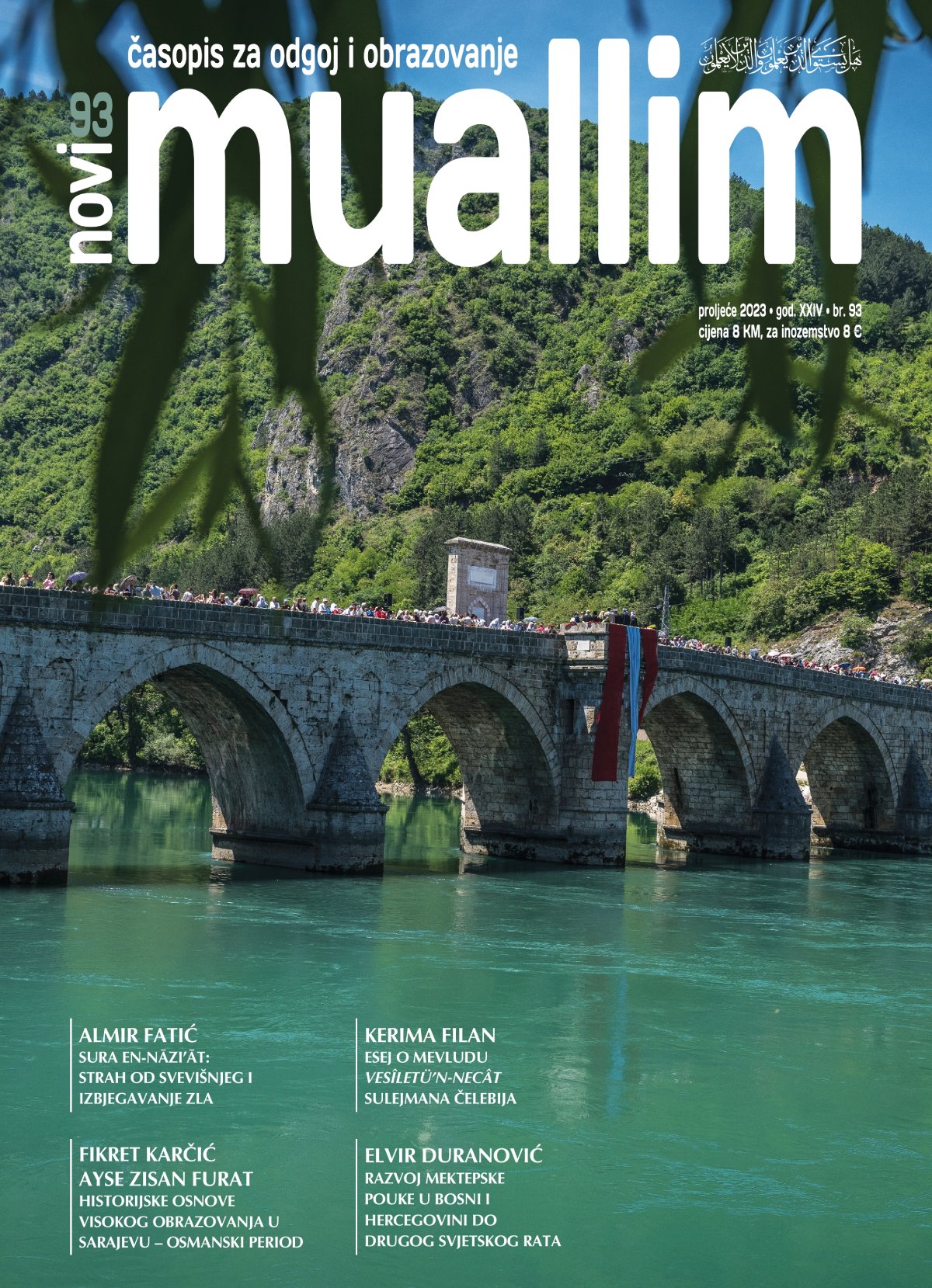O granicama razuma: Ibn Haldūnova kritika filozofije
DOI:
https://doi.org/10.26340/muallim.v24i93.2008Ključne riječi:
Ibn Haldūn, razum, kritika filozofije, spoznajna ograničenost filozofije, bitak, logika, racionalni dokaziSažetak
UDK: 28-1 Ibn Haldūn
UDK: 1 Ibn Haldūn
Autor u ovom radu izlaže promišljanja poznatog filozofa povijesti Ibn Haldūna (u. 1406. god) vezana za filozofiju. U proučavanju povijesti on je isticao jaku racionalnu notu, dok je razmatrajući filozofiju ukazivao na njenu spoznajnu ograničenost. U prvom dijelu rada se predstavlja Ibn Haldūnova podjela filozofije. Zatim slijedi njegov kratki povijesni presjek razvoja filozofije i njenog dospijevanja u islamski svijet. Potom je najveći dio posvećen Ibn Haldūnovoj kritici filozofije. U zaključku se ističe da je glavna Ibn Haldūnova zamjerka filozofima to što nemaju u vidu da je bitak šire područje od filozofskog shvaćanja. Ipak, pozitivno se izjašnjava o logici kao najispravnijoj normi filozofskog mišljenja. To što je skretao pažnju na granice razuma ne znači da je napadao razum već je potcrtavao da ga treba koristiti kritički. Ibn Haldūn se nije suprotstavljao filozofskim učenjima uz pomoć vjerskih tekstova već racionalnim dokazima, što znači da nije zastupao antiracionalistički stav.
Downloads
Objavljeno
How to Cite
Broj časopisa
Rubrika
License

This work is licensed under a Creative Commons Attribution 4.0 International License.
Naknada:
a. Časopis ne naplaćuje naknadu za obradu članaka (APC) i naknadu za podnošenje članaka.
Autori koji objavljuju u ovom časopisu pristaju na sljedeće uvijete:
- Autori zadržavaju autorska prava i pružaju časopisu pravo prvog objavljivanja, pri čemu će rad jednu godinu po objavljivanju biti podložan licenci Creative Commons imenovanje koja omogućuje drugima da dijele rad uz uvijet navođenja autorstva i izvornog objavljivanja u ovom časopisu.
- Autori mogu izraditi zasebne, ugovorne aranžmane za ne-ekskluzivnu distribuciju rada objavljenog u časopisu (npr. postavljanje u institucionalni repozitorij ili objavljivanje u knjizi), uz navođenje da je rad izvorno objavljen u ovom časopisu.


